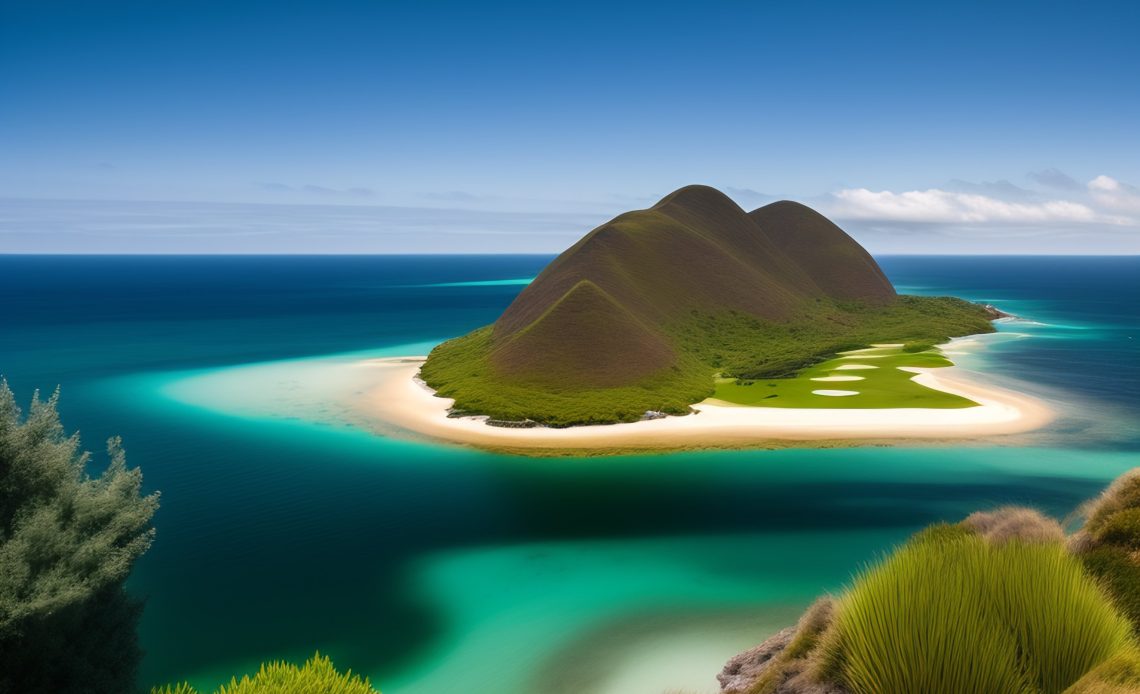Introduction
Welcome to a land of rugged beauty and serene isolation – Pitcairn Islands. Nestled in the South Pacific Ocean, this tiny British Overseas Territory is one of the most remote inhabited places on Earth. Far from the bustling cities and crowded tourist destinations, Pitcairn offers a unique and off-the-beaten-path travel experience. In this article, we will take you on a virtual journey to this hidden gem, exploring it’s history, culture, natural wonders and what makes it an exceptional destination for intrepid adventurers seeking solitude and tranquility.
The Captivating History of Pitcairn Islands
A Seafaring Legacy
The history of Pitcairn Islands is intertwined with the infamous mutiny on the Bounty, a legendary tale that captures the imagination of many. In 1789, after a revolt against their harsh captain, Fletcher Christian and a group of mutineers settled on Pitcairn, seeking refuge from the Royal Navy. They brought Polynesian men and women with them and their descendants make up the island’s population today.
Bounty’s Enduring Legacy
The Bounty’s remains can still be explored on the island, adding a touch of intrigue to your journey. The islanders’ cultural heritage is deeply rooted in their seafaring past and the Bounty’s history echoes through the daily lives of the Pitcairn people.
Unraveling the Natural Wonders
A Pristine Paradise
Pitcairn Islands boast untouched landscapes and an abundance of unique flora and fauna. The island’s remoteness has preserved it’s natural beauty, offering visitors a chance to immerse themselves in the splendor of unspoiled nature.
Biodiversity Hotspot
Despite it’s small size, Pitcairn is a biodiversity hotspot. The surrounding waters are teeming with marine life, including colorful coral reefs, dolphins, whales and various species of fish. Exploring the underwater world while snorkeling or diving is an awe-inspiring experience.
Endemic Species
Many of the plant and animal species found on the islands are unique to this region. The Pitcairn Reed Warbler and the Pitcairn Henderson Petrel are among the endemic bird species that birdwatchers dream of spotting.
Pitcairn’s Green Heart
The island is blanketed with lush vegetation, featuring rare and exotic plants. Walking through the verdant forest trails, you’ll feel as if you’ve stepped into a botanical wonderland.
Read More: Visiting Philadelphia’s Zoo: An Unforgettable Wildlife Adventure
Embracing the Island Culture
- A Close-Knit Community: The Pitcairn community is small, with a population of around fifty inhabitants, fostering a tight-knit and welcoming environment. The islanders are proud of their heritage and happily share their stories with visitors.
- Artistry and Craftsmanship: Art and craftsmanship are deeply ingrained in Pitcairn’s culture. You’ll find intricately carved wooden items and beautiful paintings that reflect the island’s rich artistic tradition.
- Festivals and Celebrations: Participating in local festivals and celebrations offers a glimpse into the islanders’ vibrant culture. From Bounty Day to the annual Pitcairn Regatta, these events are filled with joy, music and dance.
- A Journey into the Past: Visiting the Pitcairn Island Museum is like stepping back in time. The museum houses artifacts from the Bounty and documents the island’s history, giving visitors a deeper understanding of it’s fascinating past.
Experiencing the Island Life
- Off-the-Grid Living: Pitcairn Islands do not have an airport and the only way to reach them is by sea. This isolation lends itself to a unique experience of disconnecting from the outside world and embracing a simpler way of life.
- Homestay Opportunities: As a guest on the island, you have the chance to experience true hospitality by staying with a local family. This immersive experience allows you to participate in their daily routines and gain insights into their traditions.
- Sustainable Tourism: Pitcairn’s commitment to sustainable practices ensures that tourism does not harm the delicate ecosystem. As a responsible traveler, you can contribute to preserving the island’s natural wonders for future generations to enjoy.
Practical Tips for Your Journey
The Ideal Time to Visit
The best time to visit Pitcairn Islands is during the austral summer, from November to March, when the weather is warm and pleasant. However, keep in mind that weather conditions can change quickly due to the island’s remote location.
Getting There
To reach Pitcairn, you’ll need to take a long sea voyage from New Zealand onboard a dedicated passenger and cargo vessel. The journey itself is an adventure, as you sail across the vast South Pacific.
Accommodation and Facilities
Accommodation options are limited on the island, with a few guesthouses and homestays available. Basic amenities are provided, but remember that you’re visiting for the pristine nature and not luxury resorts.
Preparing for the Journey
As Pitcairn is a remote destination, it’s essential to plan and prepare in advance. Pack appropriate clothing, including lightweight and breathable fabrics for the tropical climate, as well as hiking gear for exploring the island’s trails.
Also Check: Kufri – Embrace the Enchanting Beauty of Himachal Pradesh
Conclusion
Pitcairn Islands beckon adventurous souls seeking an escape from the ordinary. Far from the tourist crowds, this secluded paradise offers an opportunity to reconnect with nature. Immerse yourself in a captivating history and embrace a way of life that remains untouched by modernity.
Embark on a journey of a lifetime to Pitcairn, where time seems to slow down and the beauty of the world takes center stage. Experience the warmth and hospitality of the islanders, explore the pristine wilderness and create memories that will last a lifetime.


Pretty nice post. I just stumbled upon your blog and wished to say that I’ve really enjoyed surfing around your blog posts. After all I will be subscribing to your rss feed and I hope you write again very soon!
Very interesting information!Perfect just what I was searching for! “Charity is injurious unless it helps the recipient to become independent of it.” by John Davidson Rockefeller, Sr..